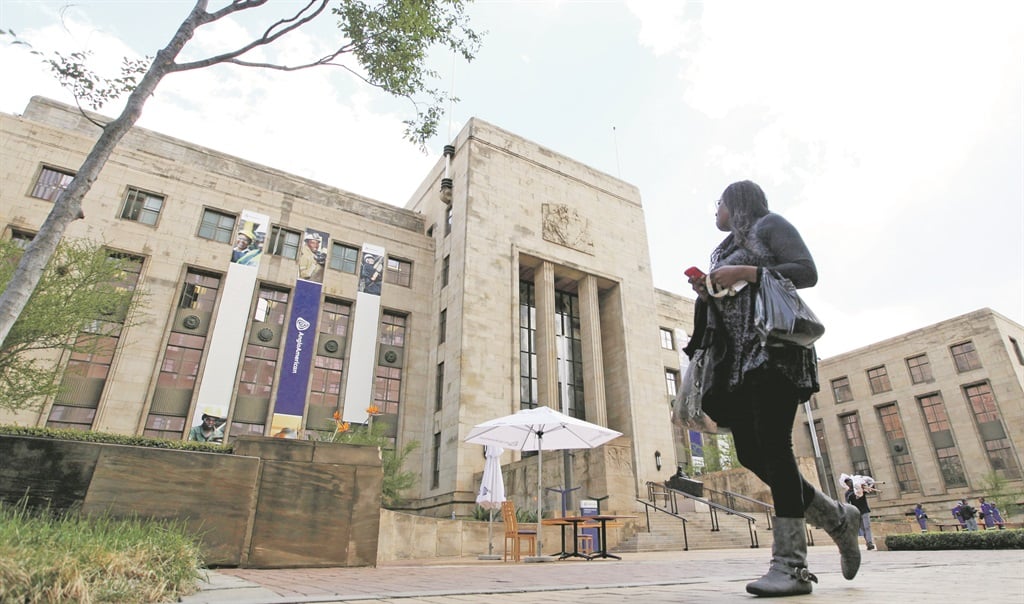
Anglo American, the colossus whose shadow fell over all of SA, is looking sick, writes Reg Rumney
It’s too soon for obituaries, but the company that once bestrode the South African business scene like a colossus is looking sick.
“Anglo who?” a former executive joked when I phoned to talk about the firm’s history.
Not so long ago, Anglo American was involved in products and services no South African could escape, from breakfast cereals in the morning to the cars on the way to work, to the wine and beer consumed at suppertime.
But the shares of the 99-year-old company once referred to as SA Inc have plumbed new depths, and the company’s debt has been downgraded to junk by the all-powerful ratings agencies.
Assailed by the downturn in the prices of commodities Anglo has relied on, the company is now looking to sell its iron ore, nickel and coal mines, and slim down to focus on diamonds, platinum and copper, closing mines and retrenching tens of thousands of workers.
Anglo American inherited both the diamond empire, De Beers, created by archcolonialist Cecil John Rhodes, and a broader vision of business. Harry O, as he was known, the son of the founder of Anglo, Sir Ernest Oppenheimer, once said: “What my father derived from the doctrine of Rhodes was that making money, while extremely important in itself, should be looked upon as a by-product of the development of southern Africa.”
But Harry O’s son Nicholas once told me: “My grandfather said De Beers was founded on human vanity and greed.” Sir Ernest was said to have pressed diamonds into the hands of the wives of visiting dignitaries as they left parties he hosted.
From the start, just as Anglo and De Beers were intertwined, so were money and politics. Along with founding Anglo American in 1917, Sir Ernest was for a time mayor of Kimberley and later an MP in the Union government, where he shrewdly introduced legislation that aided his diamond-distribution monopoly, the Central Selling Organisation.
It was for decades the most successful monopoly in the world, a fact that irritated the capitalists of the US, though US investors had supplied half of Anglo’s initial capital. The “American” part of “Anglo American” seemed out of place, given that the Oppenheimers were said to steer clear of visiting the States for fear of arrest to face antitrust charges.
Gold was the second pillar of the Oppenheimer empire’s success, increasingly dug out of unstable ground at unheard-of depths in dangerous, unhealthy conditions by black mine workers for little pay. Profits from diamonds and gold fuelled the company’s venture into industry. It grew by starting new companies and buying existing ones in the hothouse of the apartheid economy, particularly as foreign investors sold up and left.
Anglo gained from apartheid, a constant theme of critics, who pointed out that the careful condemnation expressed by Harry O meant that not only did the company enjoy the fruits of apartheid while keeping its conscience clean, but its opposition served to sanitise an unacceptable situation.
For right wing critics, especially white labour, Anglo wanted to end apartheid so that it could exploit white as well as black workers. The National Party press, for instance, published cartoons calling Oppenheimer “Hoggenheimer”, drawing on anti-Semitic as well as anti-capitalist sentiment. Nationalisation was first threatened, not by the ANC but by Afrikaners.
Today, for economic nationalists, the company’s fortunes are karma, payback for moving its headquarters to London at the turn of the millennium; for others, the junk rating is a deserved fate for a company that only thrived because of apartheid South Africa; for yet others, it is punishment for a dubious history of ruthlessly exploiting black labour.
The truth is Anglo is and was a South African company which, because of its origins, thought it was British. Moving to London in 1999 exposed what one former executive called “the neocolonials of the City of London”, who wanted the company to look more like a British company. This meant investing everywhere but Africa, especially South Africa, while espousing the opposite.
The pressure from London analysts meant that Anglo behaved in an un-Anglo-like way, selling its industrial companies, not keeping cash, and borrowing heavily to invest in the mistaken belief that high commodity prices would continue for decades.
In the end, moving to London helped to dismantle the giant conglomerate through unbundling, aiding the deconcentration of the South African economy. The giant is a giant no more, partly because some of its parts, such as AngloGold, were spun off into separate companies.
Ironically, Anglo remains the biggest mining company in South Africa because the other big mining companies have fled, some say in reaction to policy uncertainty, regulatory burdens and perceived hostility to foreign capital.
Had it managed to keep its HQ here – in fact, had it not listed in London – Anglo American would have continued to be instrumental in developing African mining and industry.
TALK TO US
What would Anglo’s legacy have been if it had not listed in London?
SMS us on 35697 using the keyword ANGLO and tell us what you think. Please include your name and province. SMSes cost R1.50




 Publications
Publications
 Partners
Partners








